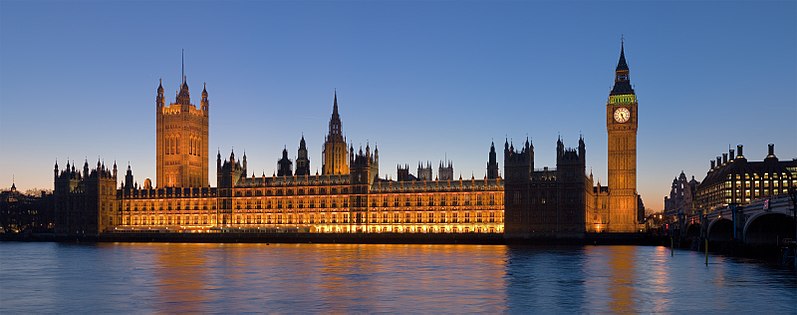In one of our very early posts here, we defined counter-terrorism review as “the retrospective consideration of counter-terrorism laws and measures to assess their lawfulness, propriety, impacts, effectiveness and appropriateness by reference to core principles of democracy, human rights and the rule of law”. Here we noted specifically that review would be retrospective (as opposed to authorising or prospective) and the kinds of principles we envisage should underpin it, but we did not dwell on the question of purpose.
Purpose has become quite important in our on-going work, especially as we have begun to (re)visit the reasons why we will argue counter-terrorism review is important. Those reasons are moving increasingly towards accountability, which might perhaps have been predicted, but what is interesting is the extent to which our desk research, our interviews (now over a dozen with key counter-terrorism actors and civil society), and our literature reviews across other disciplines are all now pointing towards accountability as a key concern. The challenge for us, then, is in identifying (a) what kinds of accountability deficits currently exist in terms of counter-terrorism, and (b) how counter-terrorism review—understood as we are approaching it—might help to address those (if at all).
Importantly, our focus here is on accountability for the creation and implementation of the vast and sprawling ‘system’ that counter-terrorism has become, and for measures that are introduced to add to (and potentially fragment or create internal inconsistencies in) that system, rather than on individualised accountability for the application of particular counter-terrorism powers.
Far from being temporary or exceptional, as much conventional scholarly and political wisdom might have suggested twenty or twenty-five years ago (although of course this was disputed), counter-terrorism is now a normalised mode of governing at domestic and, indeed, transnational levels. There are multiple forms and layers of counter-terrorism all operating at the same time, from primary legislation, regulations, circulars, operational protocols, road maps, action plans, strategies and policies to Security Council Regulations and EU Directives. Counter-terrorism is also sprawling; it extends into almost all fields of activity from aviation regulation to school governance and immigration control (which itself is a sprawling enterprise). Counter-terrorism is everywhere, but its scale and extent are such that it almost defies comprehensive cataloguing.
There is now a large, sprawling, multi-part, and effectively permanent ‘system’ of counter-terrorism operating in the UK, which calls into question the ability, in realistic terms, for the standard political structure to be sufficient in accountability terms. Indeed, the depth and pace of change that has brought about the counter-terrorism system has softened and evaded some the standard scrutiny that accompanies government measures. This matters because the political system is perhaps the quintessential accountability mechanism on which we tend to rely, so that we should be concerned if its capacity is limited by scale or subject-matter.
In blunt terms, having sufficient knowledge of the whole system and how its different parts interact is a phenomenal challenge for anyone, not to mention an MP for whom this is only one of hundreds of issues. This is exacerbated by (or perhaps exacerbates) what two of us (Morgan and de Londras) argue in a forthcoming article in the King’s Law Journal is a kind of cross-party consensus around core repressive counter-terrorism commitments that calls into question political willingness to challenge the fundamentals of counter-terrorism in the UK. Thus, one purpose that counter-terrorism review potentially could have is to create a comprehensive, well-informed picture of counter-terrorism in order to map its scale and extent, identify inconsistencies within it, and empower the political system (and the polity) to demand and actualise accountability.
Thus, counter-terrorism review is not about replacing the standard political structures as an accountability mechanism; in the UK it will always be important, and often effective, in this respect. Indeed, as our research is increasingly showing, mechanisms such as affirmative resolutions for regulations and orders (which are quite common in counter-terrorism law, although the negative procedure is generally more common, which is interesting in itself), parliamentary debates and questions, and the work of (standing and ad hoc) parliamentary committees are themselves important forms of counter-terrorism review. However, other forms of review (such as civil society activity and reports, or the reports of statutory reviewers) can and should interact with those mechanisms to enhance and improve them by empowering politicians and political processes with fuller and better information.
This cannot necessarily address the second challenge here—which is that apparent cross-party consensus around counter-terrorism per se—and mind-set or willingness to change tack are important elements to effective counter-terrorism that we will return to in the future. But providing tools to get to grips with scale and complexity in order to equip politicians to undertake their accountability functions is an important purpose of counter-terrorism review.
One of the challenges in understanding counter-terrorism review is to identify the ways in which these forms of interaction and inter-mechanism enhancement already take place, what value they bring, and how they might be enhanced. Our work on this continues.

Attribution: Photo by Diliff licensed under the Creative Commons Attribution-Share Alike 2.5 Generic license, available here.

1 thought on “Politics, Accountability and Counter-Terrorism Review”